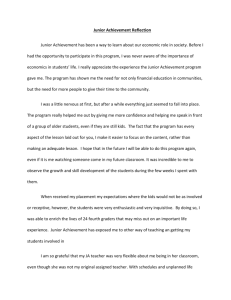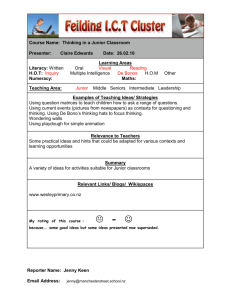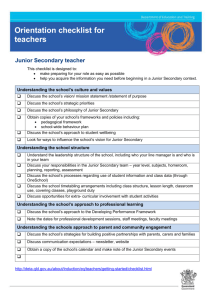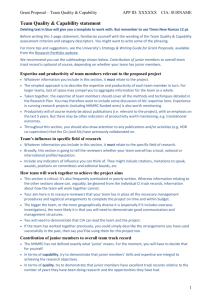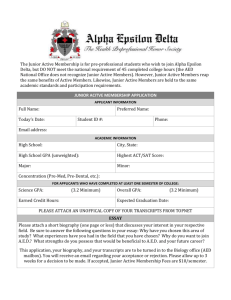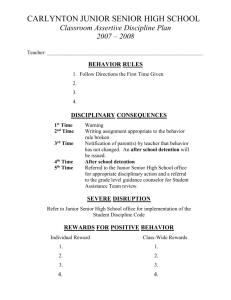Annual-Newsletter-20..
advertisement
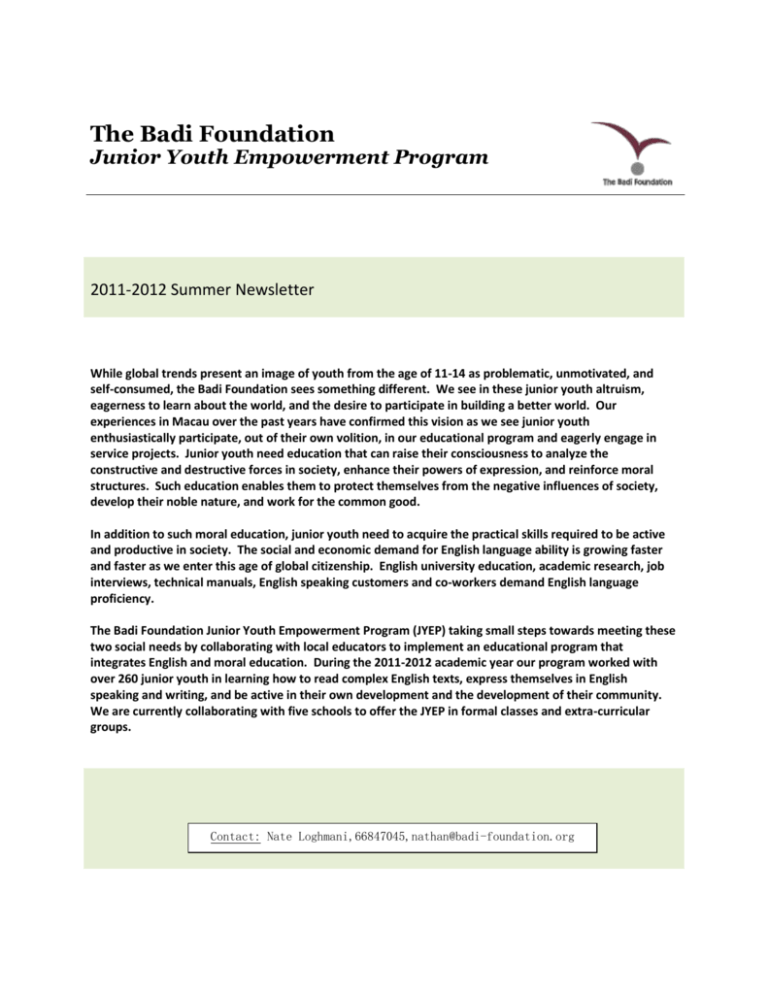
The Badi Foundation Junior Youth Empowerment Program 2011-2012 Summer Newsletter While global trends present an image of youth from the age of 11-14 as problematic, unmotivated, and self-consumed, the Badi Foundation sees something different. We see in these junior youth altruism, eagerness to learn about the world, and the desire to participate in building a better world. Our experiences in Macau over the past years have confirmed this vision as we see junior youth enthusiastically participate, out of their own volition, in our educational program and eagerly engage in service projects. Junior youth need education that can raise their consciousness to analyze the constructive and destructive forces in society, enhance their powers of expression, and reinforce moral structures. Such education enables them to protect themselves from the negative influences of society, develop their noble nature, and work for the common good. In addition to such moral education, junior youth need to acquire the practical skills required to be active and productive in society. The social and economic demand for English language ability is growing faster and faster as we enter this age of global citizenship. English university education, academic research, job interviews, technical manuals, English speaking customers and co-workers demand English language proficiency. The Badi Foundation Junior Youth Empowerment Program (JYEP) taking small steps towards meeting these two social needs by collaborating with local educators to implement an educational program that integrates English and moral education. During the 2011-2012 academic year our program worked with over 260 junior youth in learning how to read complex English texts, express themselves in English speaking and writing, and be active in their own development and the development of their community. We are currently collaborating with five schools to offer the JYEP in formal classes and extra-curricular groups. Contact: Nate Loghmani,66847045,nathan@badi-foundation.org Formal Classes In the 2011-2012 Academic Year, the JYEP collaborated with teachers from Pooi To Secondary, Fong Chong Taipa Secondary, and the School of the Nations to offer JYEP classes as a part of English or Character Development curriculum of the school. Texts centered on universal moral principles enable students to practice reading, writing, and speaking in the context of building a better society. Evaluation and projects are introduced to strengthen the process of learning within each class. Strong collaboration between JYEP teacher and school teachers creates an environment of cooperative learning, creativity, and enthusiasm. Extra-Curricular Groups Extra-curricular groups were held at Pui Va Secondary, Pooi To Secondary, Lou Hau Primary, and the School of the Nations during the 2011-2012 academic year. Extra-curricular groups with 10-20 participants meet for 1.5 hours each week and give students a chance to learn in a relaxed and friendly environment of mutual encouragement and respect. These small groups are able to do activities such as service projects, group outings, and field trips. As junior youth have an intense desire to belong to a peer group in which they are accepted, they are generally very happy to join a junior youth group that learns together, plays together, and does meaningful service. Service Projects Service to society helps junior youth to learn more about themselves and develop their capacities. With the right guidance and support these junior youth can grow up to become the future defenders of the environment, builders of peace, and selfless educators of humanity. We are now learning how to guide them to plan and complete community service projects. Our JYEP groups have cleaned trash from dirty beaches in Macau, sang songs for the elderly, offered moral education classes for children, helped primary students read English story books, and helped to take care of animals at the Coloane animal shelter. Teacher Training Junior youth need older individuals who can become their true friends, and help them discover their own potential. With the aid of such teachers, junior youth find the hope and conviction to protect themselves from the negative forces in their social environment. Through study, action, and reflection we can all develop our capacity to work with junior youth. Our program relies on a network of volunteers and teachers throughout Macau to implement the junior youth program. In order to reach out to more junior youth, we have begun working closely with the University of Macau and local schools to identify volunteers who we can take part in our formal training program and learn to work with junior youth.
